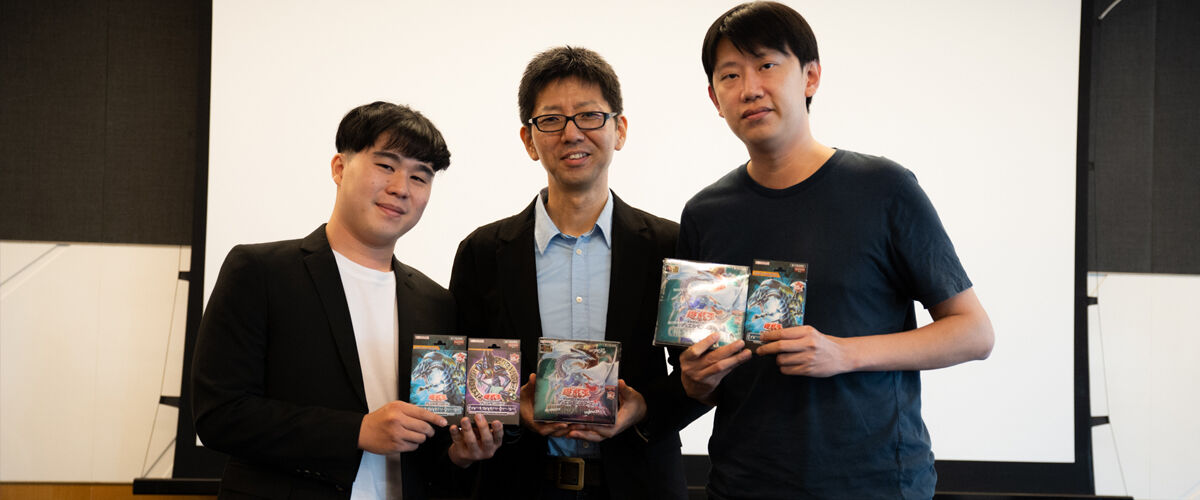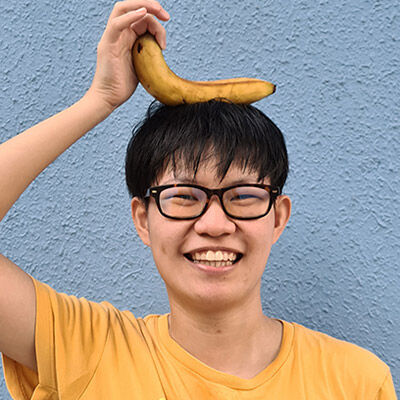This interview has been edited for clarity.
Trading card games (TCG) have always belonged to the niche space, but the cultural footprint of Yu-Gi-Oh! was significant enough to break into the mainstream market. 25 years on, and its influence continues to weather the passage of time, with the various anime adaptations and films bringing its popularity to even greater heights.
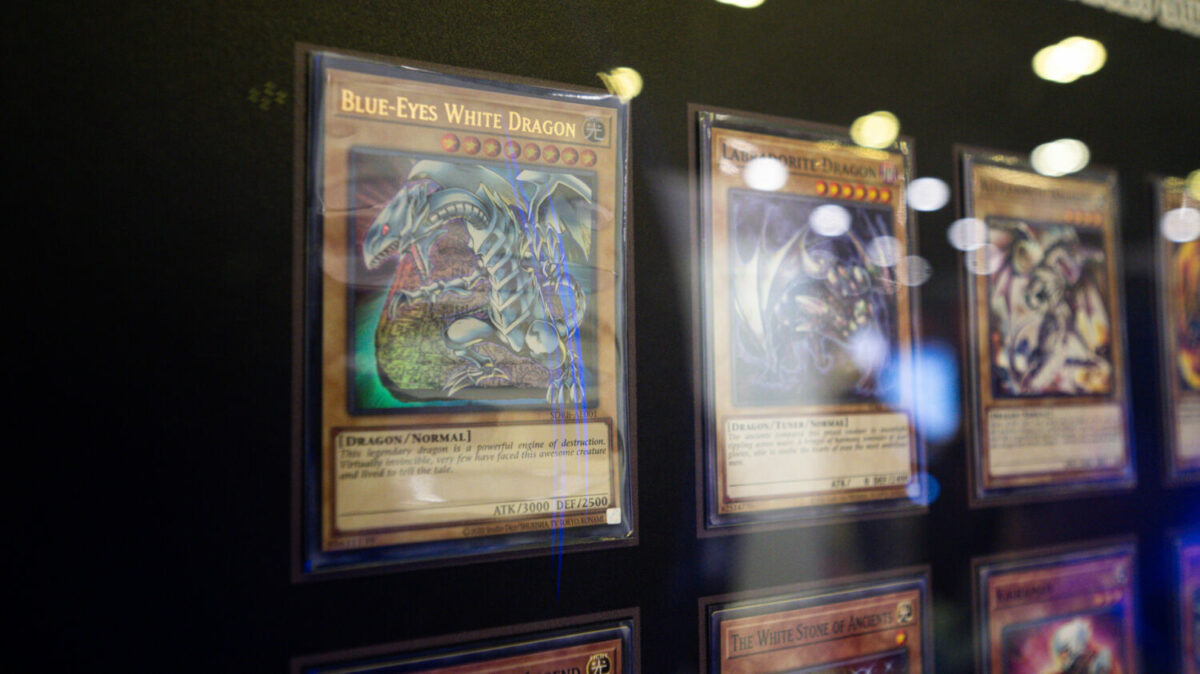
Outside the (Shadow) realm of pop culture, the franchise carries a lot of weight, as iconic creatures featured on the cards, including Blue-Eyes White Dragon and Dark Magician, continue to be widely recognised even among non-fans. If you think about it, the card game’s success is all the more impressive – not because it was officially recognised by Guinness World Records as the best-selling TCG in 2009, and again in 2011, but because the game itself is based on the fictional game of Duel Monsters from within the sprawling Yu-Gi-Oh! universe.
And the momentum hasn’t stopped since. Even in Southeast Asia, where production of the Asian-English cards – printed in English for distribution in Asia outside of Japan and Korea – stopped in 2009, Yu-Gi-Oh! still saw a dedicated following over the years, managing to maintain a presence and in recent years, has seen an increase in following in more Asian markets such as Indonesia, which would explain the reintroduction of English language cards.
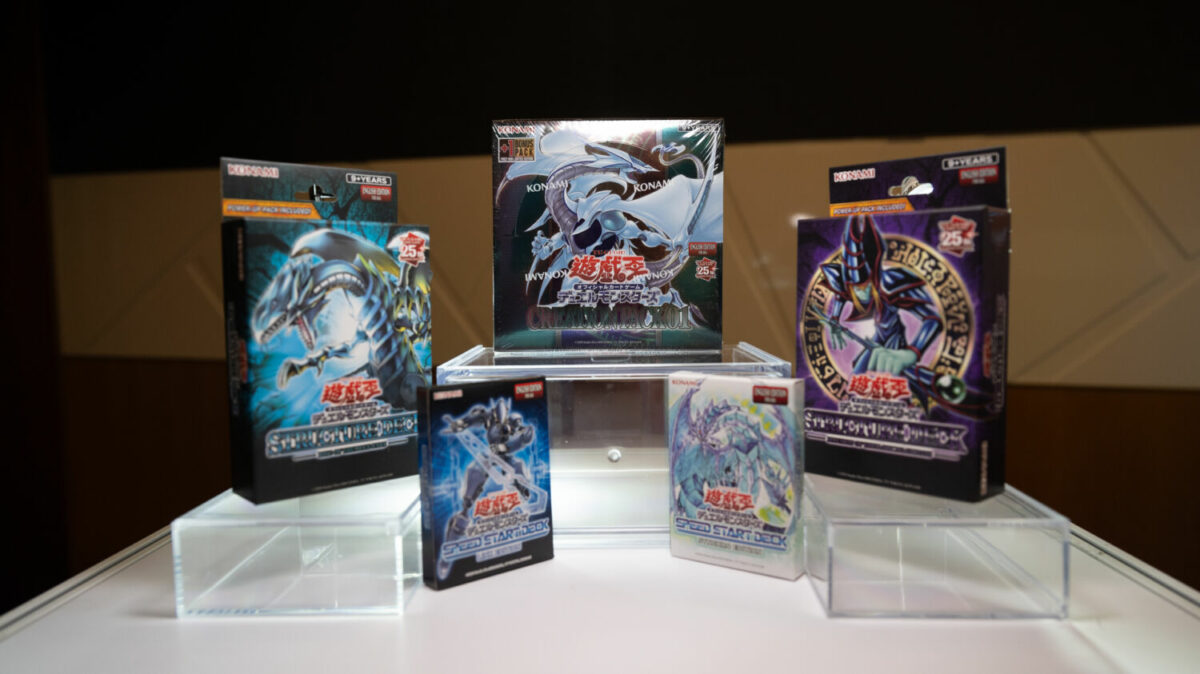
With the recent launch of Yu-Gi-Oh! Original Card Game (OCG) English Edition for Asia, card maker Konami is looking to cater to this growing demand, while ramping up interest and efforts in the region, including Singapore. The long-awaited release was announced for Thailand, Singapore, Malaysia, Hong Kong, Taiwan, the Philippines, and Indonesia on 11 November, taking the form of two Structure Decks: Rise of the Blue-Eyes, based on the 2013 Japanese deck, and an original set,Illusion of the Dark Magicians.
“It can be quite difficult to play in Japanese, as most players struggle to understand [the language] as compared to native players,” said Michio Takahashi, managing director of Konami Digital Entertainment Limited to Geek Culture, when he was in town to promote the Yu-Gi-Oh! booth and new Creation Pack 01 Booster Pack launch during Anime Festival Asia Singapore 2023.
“I wanted to release an English product to reduce the effort for Southeast Asian players as much as possible. I hope this English Edition will boost excitement and nurture a world champion from Southeast Asia like Singapore, which is my dream,” he added, referring to the Yu-Gi-Oh! World Championship, the biggest duelling tournament on the international stage.
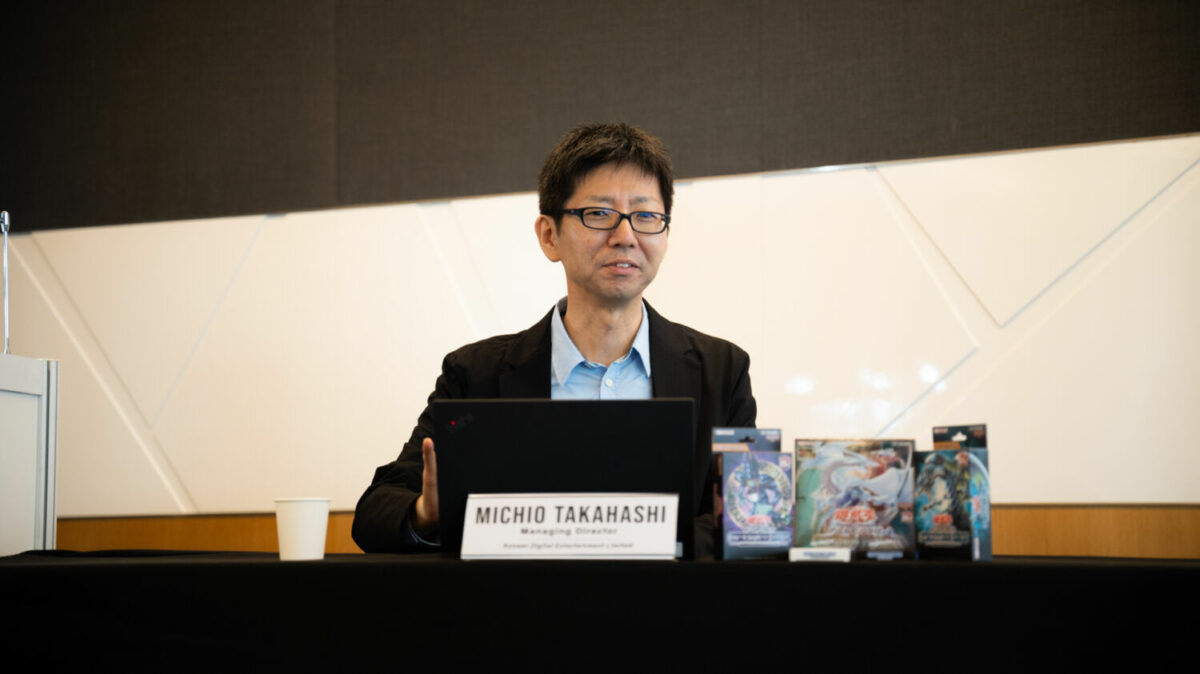
So what’s the difference between the new English cards and the previously released Asian-English cards that ceased production? And why can’t English-speaking players in Asia simply buy the English versions of the game released in Western countries? Well, there are actually two main versions of the Yu-Gi-Oh! card game, known as OCG or Original Card Game and played in Asia countries including Japan, Korea, Singapore, etc, and TCG or Trading Card Game, which is played everywhere else, in America, Europe and so on.
The new wave of English OCG cards will be labelled ‘OCG English Edition for Asia’, with the same legal conditions for OCG tournament plays, with its own regulations specific to what is effectively the English Edition for Asia decks.
But first, baby steps. To cultivate the spirit of competition, one must start somewhere, and that’s when other smaller tournaments come into play. There’s the Campus League, open only to students, as well as a brand-new league for the English Edition with its own set of rules, which is a good place for amateur duellers to find their footing and get into the groove of things.
Case in point: one of the finalists who participated in Duelist Cup 2023, a two-stage major tournament held this year in Singapore, only began playing the year before. While this is more of an exception than the rule, it does highlight a viable platform for players to test and continue building their mettle.
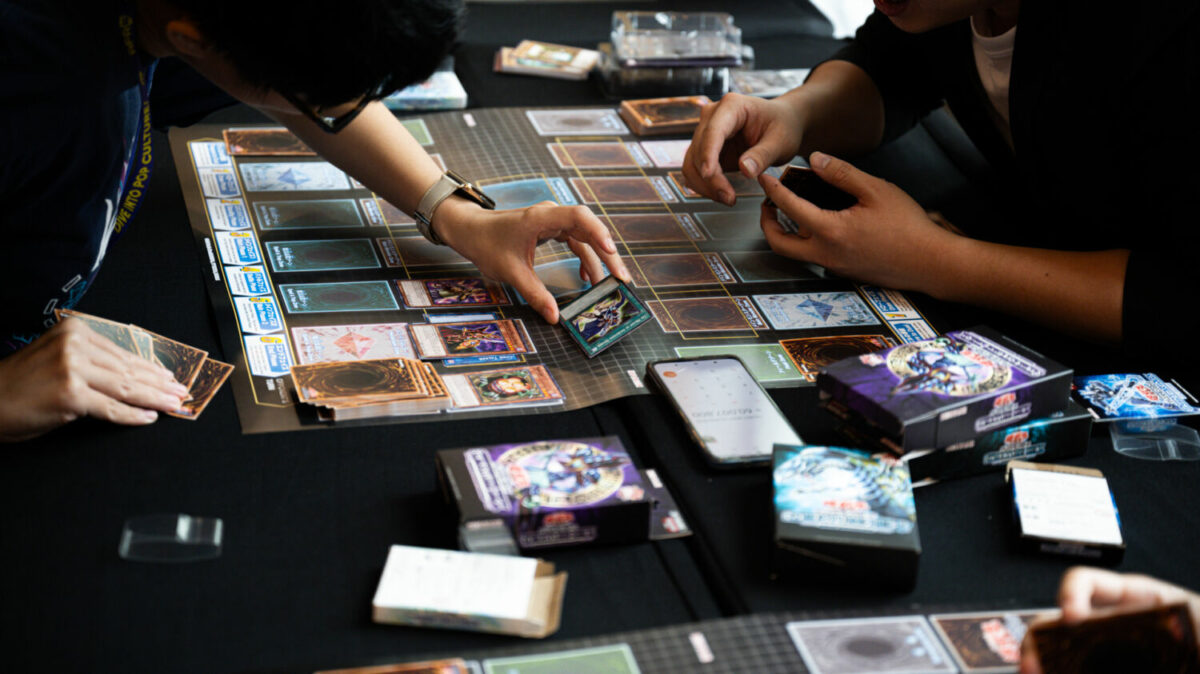
Konami won’t leave casual players or total newcomers in the dust either. Apart from the various tournaments, selected official tournament stores (OTS) in the region – 18 of them in Singapore – will also organise beginner class sessions to get would-be duellers started. The recently-launched Starter Decks have been designed to be played right out of the box, with the official Yu-Gi-Oh! Neuron app (iOS | Android) adding to the ease of access through its host of nifty features, such as providing the text for card effects, as well as calculating Life Points during a match.
The next thing on Takahashi’s wish list? Opening more OTS flagship stores in the region to accompany the flagship OTS in Shanghai, China.
“This is my dream, and I cannot say much, but I want to open some flagship stores in Southeast Asia, sometime in the future,” he revealed, sharing how the wish was born out of fond memories and the desire to foster a sense of community.
The director went on to reminisce, “I’ve visited most of the OTS in Singapore. I saw many younger people like kids and junior high school students playing the card game under the HDB (public housing built and managed by the Singapore government) at the void deck, without checking the price or card rules. The scene is similar to that of Japan – I did that kind of thing when I was there, so it felt a bit nostalgic.”
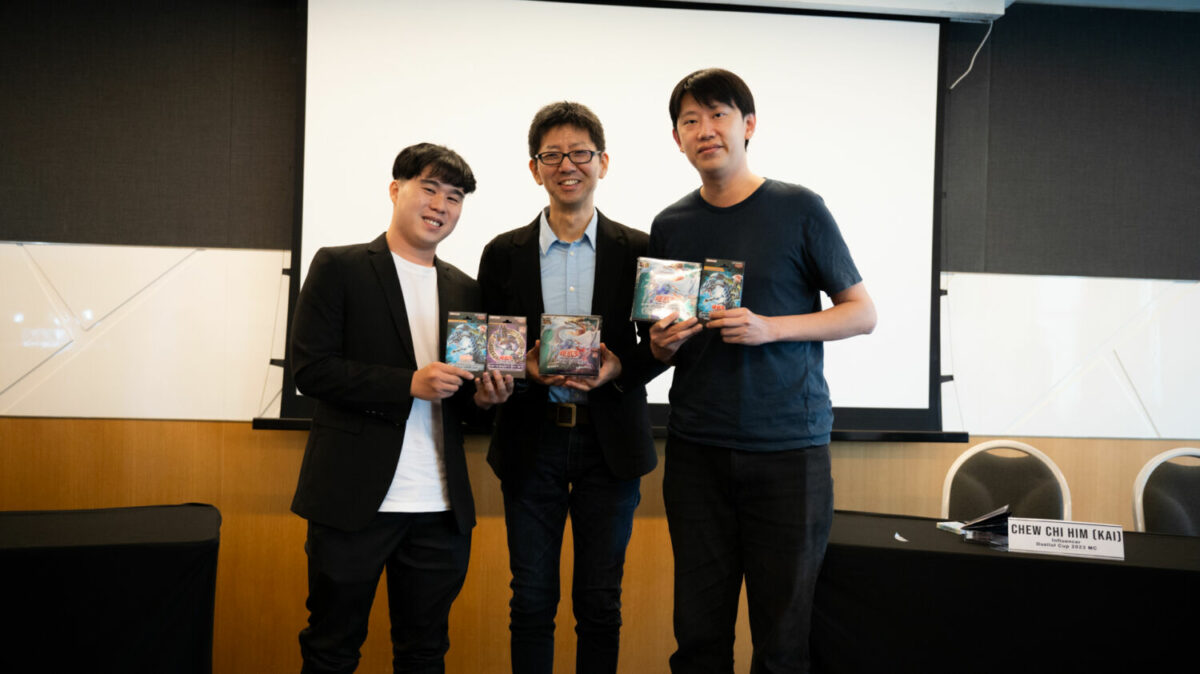
Indeed, the social aspect is what has kept Yu-Gi-Oh! going strong all the while, even as the OCG/TCG scene grows more competitive with each passing year. The many communities on social media makes it easier for players to link up with other similar-minded individuals from all over the world, but there’s no denying the appeal that comes with physical interaction, be it walking into a store, or getting to know other enthusiasts of different skill levels.
“Before the pandemic, I visited many regions of Southeast Asia, and I’d feel excited every time,” shared Takahashi. “So I’d be happy for players to make new friends and create special memories through Yu-Gi-Oh!, because special moments always result in special memories.”
As the community celebrates the franchise’s 25-year legacy, this significance is greater than ever. “This year marks the game’s 25th anniversary, but all the cards from 20 years ago are still available, so there’s a lot of history behind it,” said the industry veteran. “The more you play, the more depth you’ll find about Yu-Gi-Oh!“.
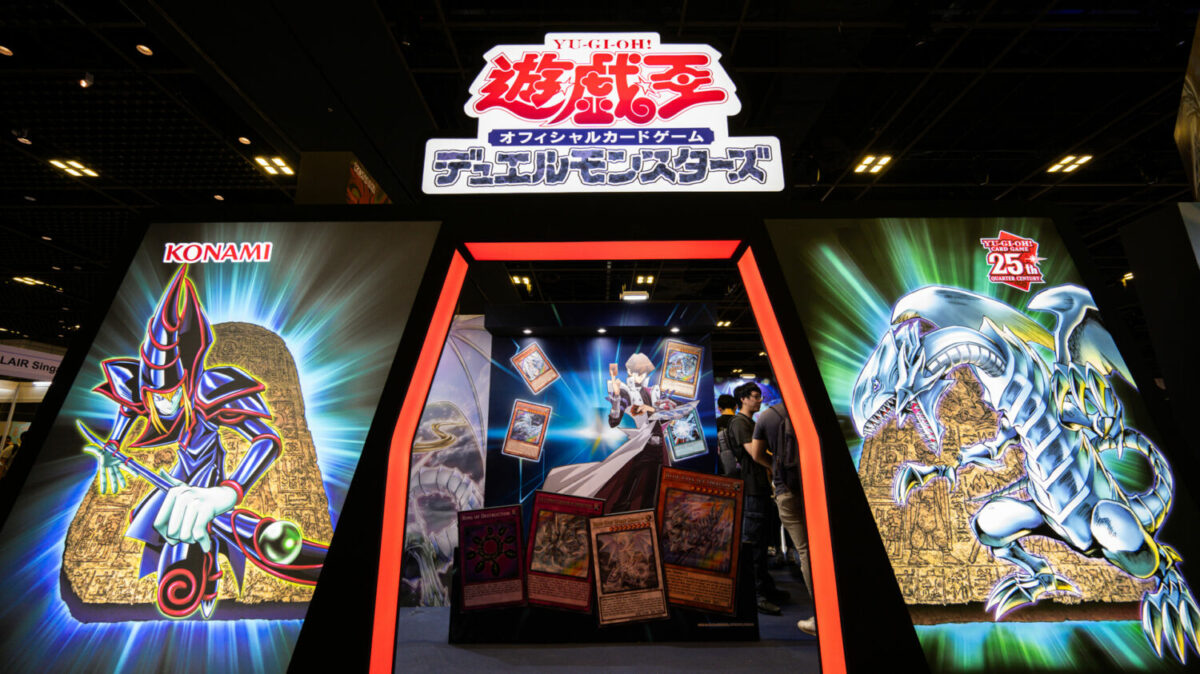
As it stands, the Yu-Gi-Oh! OCG English Edition for Asia is only scratching the surface. Moving into 2024, fans can expect the upcoming Rarity Collection in January, which promises Super Rare and above cards, as well as the OTS Battle Championship English Edition for Asia in February, where the winner of each region is guaranteed a seeded position at next year’s Duelist Cup.
The Yu-Gi-Oh! spirit has never felt so alive.

